
The Heart of Gdansk: Main City
Main City in Gdansk is a captivating blend of history, culture, and modern vibrancy. As you stroll through the cobblestone streets, you’ll be surrounded by beautifully restored buildings that whisper tales of the past. The architecture here is a testament to the city's rich heritage, with stunning examples of Gothic, Renaissance, and Baroque styles. At the center of Main City is the iconic Long Market (Długi Targ), a lively square filled with cafes, restaurants, and shops. This bustling area is perfect for people-watching or enjoying a leisurely meal. Nearby, the majestic Neptune Fountain stands as a symbol of Gdansk’s maritime legacy. Don’t miss the towering St. Mary’s Church, one of the largest brick churches in the world, offering panoramic views from its tower. For a deeper dive into history, visit the Gdansk History Museum housed in the historic Town Hall. The museum offers fascinating exhibits that detail the city’s past, from medieval times to the modern era. The Main City is also home to charming boutiques and local artisan shops, perfect for picking up unique souvenirs. As evening falls, the neighborhood transforms into a vibrant nightlife hub with a variety of bars and clubs. Whether you're a history buff, a foodie, or simply looking to soak in the local atmosphere, Main City in Gdansk offers an unforgettable experience.
Local tips in Main City
- Visit early in the morning to avoid the crowds at popular tourist spots like Long Market and St. Mary’s Church.
- Try traditional Polish dishes at local eateries for an authentic culinary experience.
- For a unique perspective, take a boat tour along the Motława River.
- Check the schedule for cultural events and festivals that often take place in Main City.
- Wear comfortable shoes as the cobblestone streets can be tough on your feet.
The Heart of Gdansk: Main City
Main City in Gdansk is a captivating blend of history, culture, and modern vibrancy. As you stroll through the cobblestone streets, you’ll be surrounded by beautifully restored buildings that whisper tales of the past. The architecture here is a testament to the city's rich heritage, with stunning examples of Gothic, Renaissance, and Baroque styles. At the center of Main City is the iconic Long Market (Długi Targ), a lively square filled with cafes, restaurants, and shops. This bustling area is perfect for people-watching or enjoying a leisurely meal. Nearby, the majestic Neptune Fountain stands as a symbol of Gdansk’s maritime legacy. Don’t miss the towering St. Mary’s Church, one of the largest brick churches in the world, offering panoramic views from its tower. For a deeper dive into history, visit the Gdansk History Museum housed in the historic Town Hall. The museum offers fascinating exhibits that detail the city’s past, from medieval times to the modern era. The Main City is also home to charming boutiques and local artisan shops, perfect for picking up unique souvenirs. As evening falls, the neighborhood transforms into a vibrant nightlife hub with a variety of bars and clubs. Whether you're a history buff, a foodie, or simply looking to soak in the local atmosphere, Main City in Gdansk offers an unforgettable experience.
Iconic landmarks you can’t miss
Neptune's Fountain
Explore Neptune's Fountain in Gdańsk, an iconic symbol of maritime history and a stunning architectural masterpiece in the heart of the city.
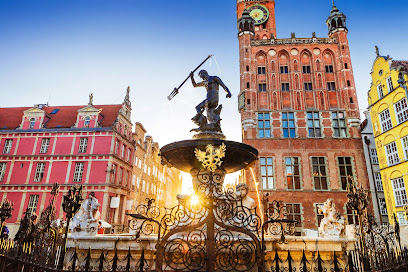
Brama Wyżynna
Explore the historic Brama Wyżynna – a stunning gateway to Gdańsk's rich architectural heritage and vibrant culture.
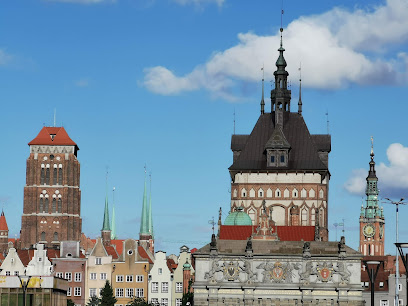
Long Market
Explore Long Market in Gdańsk, a vibrant historical landmark filled with stunning architecture, local cuisine, and a rich cultural experience.

Golden Gate
Discover the architectural beauty and historical significance of the Golden Gate, a key landmark in Gdańsk that welcomes you to explore the city's rich heritage.
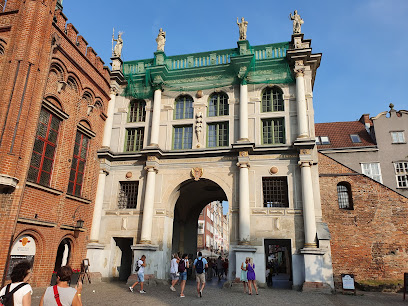
St. Mary's Gate
Explore St. Mary's Gate, a stunning historical landmark in Gdańsk, showcasing exquisite Gothic architecture and rich maritime history.
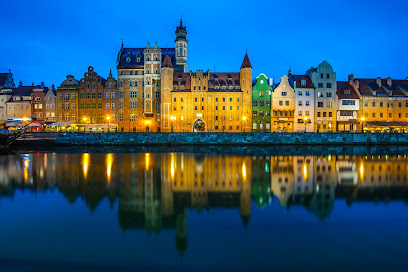
Swan Tower
Experience the historic beauty and breathtaking views of Swan Tower, a must-visit castle in the heart of Gdańsk, Poland.
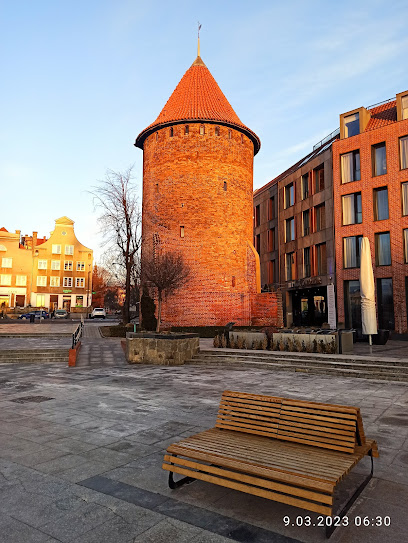
St. Mary's Street
Discover the charm of St. Mary's Street in Gdańsk, where history meets vibrant culture in a picturesque setting.
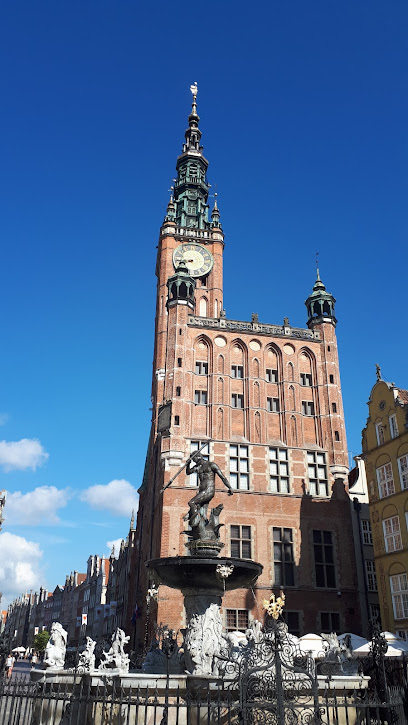
Manierystyczna fasada dawnej Wielkiej Zbrojowni (XVII w., styl holenderski)
Discover the stunning Dutch-style façade of the Former Great Armory in Gdańsk, a masterpiece of 17th-century architecture reflecting the city's rich history.
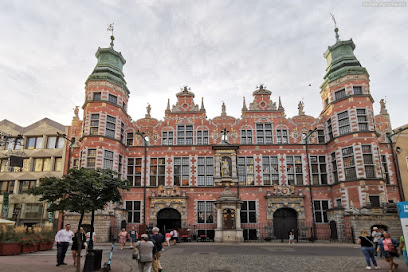
Dwór Artusa
Explore the architectural beauty and historical significance of Dwór Artusa, a cultural landmark in the heart of Gdańsk, Poland.
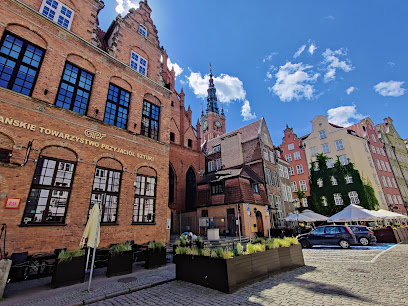
Kamienne Serce Gdańska
Discover the architectural wonder of Kamienne Serce in Gdańsk, a beautiful symbol of the city's rich culture and history that captivates every visitor.
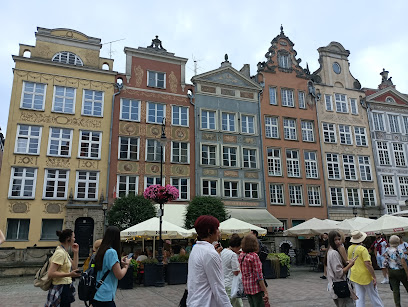
Unmissable attractions to see
Neptune's Fountain
Discover Neptune's Fountain in Gdańsk, a historical landmark showcasing the city's maritime heritage and vibrant atmosphere, perfect for your travel adventures.
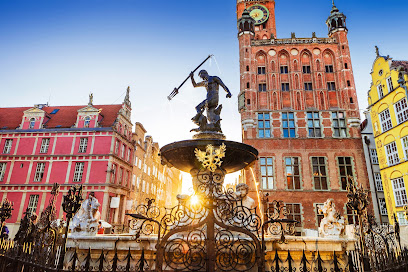
AmberSky
AmberSky offers breathtaking panoramic views of Gdańsk, making it a must-visit attraction for every tourist exploring the city.
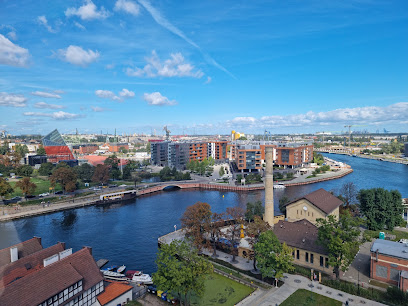
Brama Wyżynna
Explore the stunning Brama Wyżynna, a historical landmark in Gdańsk, showcasing Gothic architecture and rich cultural heritage.
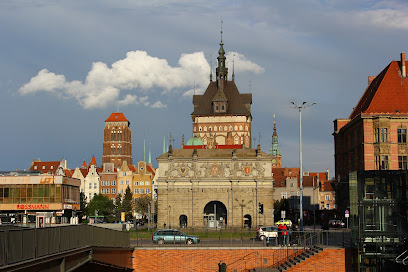
St. Mary's Church
Discover the architectural marvel of St. Mary's Church in Gdańsk, a breathtaking Gothic basilica rich in history and stunning artistry.
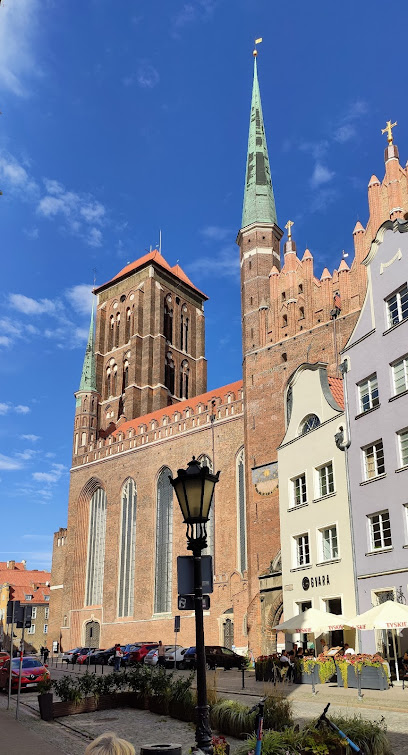
Golden Gate
Discover the Golden Gate, a stunning historical landmark in Gdańsk, Poland, where rich heritage and captivating architecture await every curious traveler.
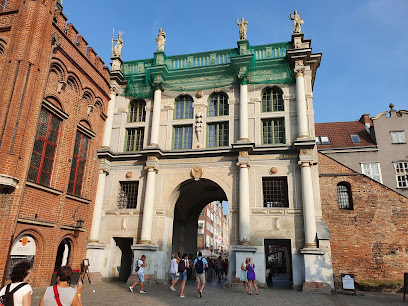
Artus Court
Explore the rich history and stunning architecture of Artus Court in Gdańsk, a must-visit museum showcasing the city's cultural heritage.

Museum of Gdańsk - Main Town Hall
Explore the captivating history and art of Gdańsk at the Museum of Gdańsk - Main Town Hall, a cultural gem in the heart of the city.
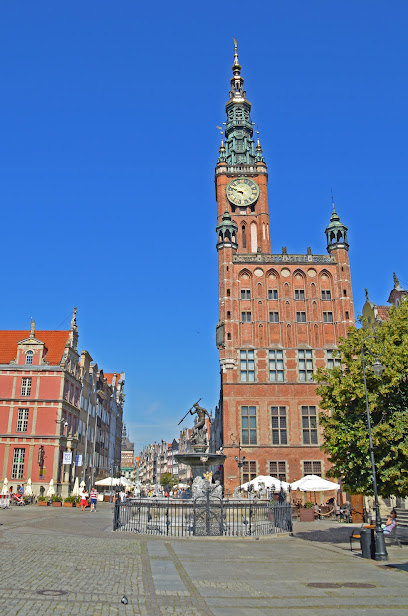
DeJa Vu Muzeum
Discover the enchanting world of illusions and creativity at DeJa Vu Muzeum in Gdańsk, where imagination comes to life in every exhibit.
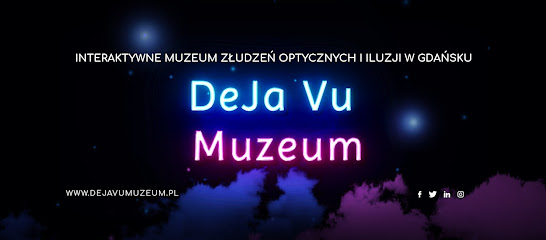
Gdańsk Carousel
Experience the magic of the Gdańsk Carousel, where history and fun come together in the heart of Gdańsk, Poland.
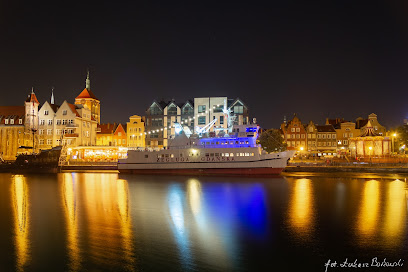
Swan Tower
Discover the enchanting Swan Tower in Gdańsk, a historical castle offering breathtaking views and rich maritime heritage.
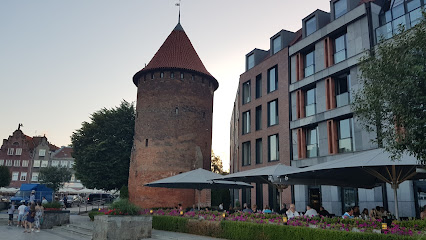
Muzeum Figur Woskowych Gdańsk Baszta Tajemnic
Experience the magic of history and culture at Gdańsk's Wax Museum, where lifelike figures bring your favorite personalities to life.
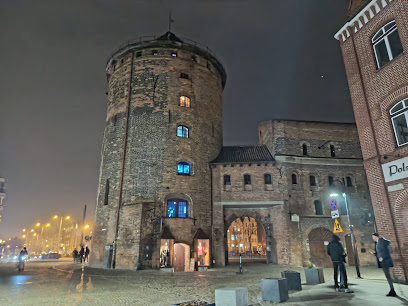
St. Mary's Street
Explore St. Mary's Street in Gdańsk, a vibrant blend of history, culture, and stunning architecture that enchants every visitor.
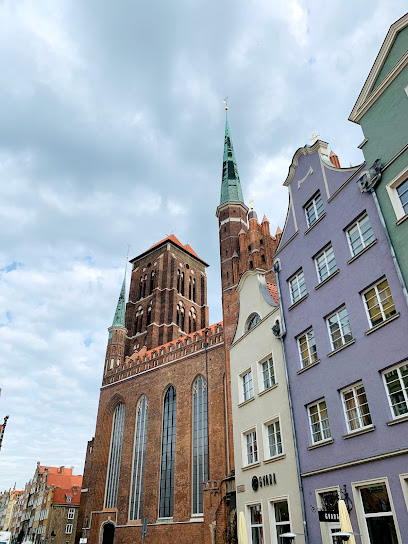
Historical Zone Free City Of Gdansk
Explore the Historical Zone of Free City of Gdansk - A Journey Through Time in the Heart of Poland's Rich Cultural Heritage!
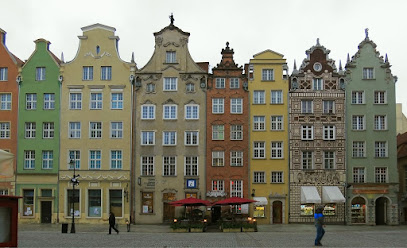
Gdańsk Mapa Turystyczna Centrum
Explore Gdańsk's vibrant city center with its stunning architecture, rich history, and delightful waterfront views for an unforgettable travel experience.
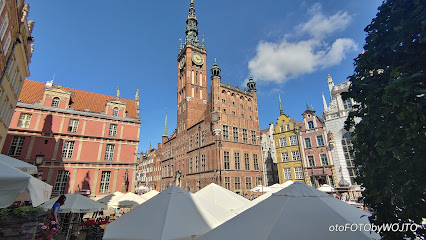
Główne Miasto Gdańsk
Discover Główne Miasto in Gdańsk, a UNESCO World Heritage site rich in history, stunning architecture, and vibrant culture.
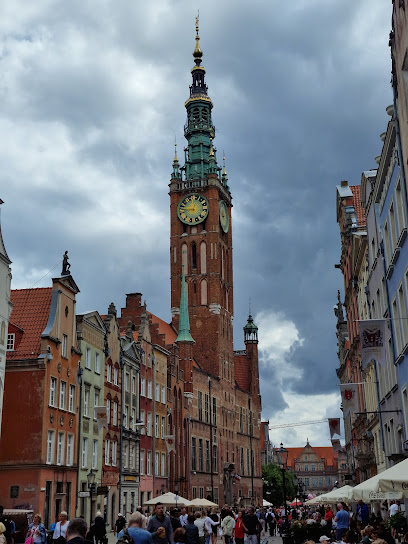
Essential places to dine
Gdański Bowke
Experience authentic Polish cuisine at Gdański Bowke with breathtaking waterfront views in the heart of Gdańsk.
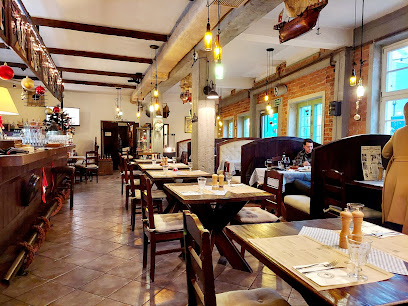
Bar Pod Rybą
Experience the vibrant flavors of Gdańsk at Bar Pod Rybą, where delicious gastropub fare meets warm Polish hospitality.
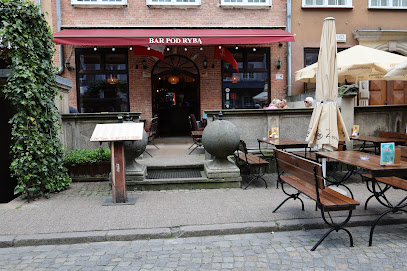
Piwnica Rajców
Experience the best of modern European cuisine at Piwnica Rajców in Gdańsk – where tradition meets innovation on your plate.
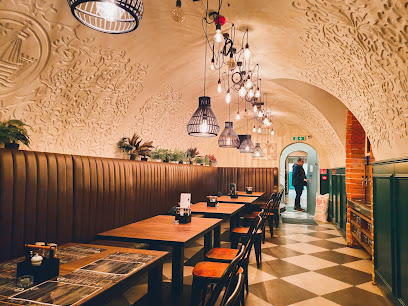
Restauracja Gvara
Experience the rich flavors of Poland at Restauracja Gvara - a delightful restaurant offering dumplings, pasta, and cocktails in the heart of Gdańsk.
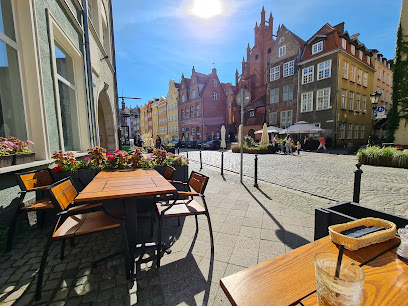
Zafishowani - restaurant - wine bar&store
Discover Zafishowani in Gdańsk: A unique blend of Asian and Mediterranean flavors paired with exquisite wines in a cozy lounge setting.
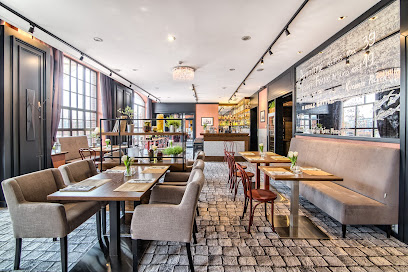
Kubicki
Experience authentic Polish cuisine at Kubicki in Gdańsk - where tradition meets modern culinary excellence.
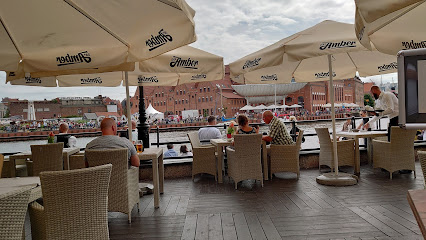
Canis Restaurant | Restauracja Stare Miasto Gdańsk
Experience the essence of modern European cuisine at Canis Restaurant in Gdańsk's enchanting Old Town.
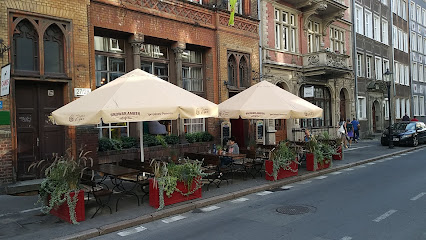
Restauracja GOLDWASSER
Experience exquisite European cuisine with stunning waterfront views at Restauracja GOLDWASSER in Gdańsk.
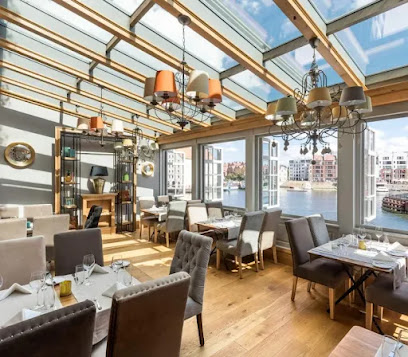
Targ Rybny - Fishmarkt
Experience the best of Gdańsk's seafood at Targ Rybny - where fresh flavors meet Mediterranean charm.
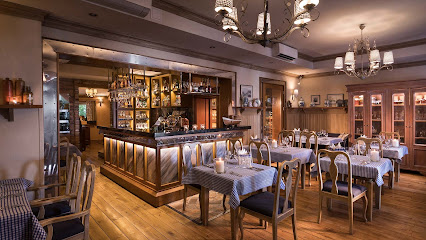
Shanti
Experience authentic Indian cuisine at Shanti in Gdańsk – where every dish tells a story through rich flavors and spices.
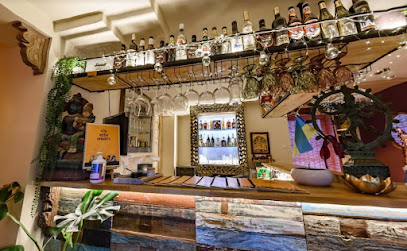
Restauracja Holender
Experience authentic Polish cuisine at Restauracja Holender in Gdańsk - where tradition meets taste in every dish.
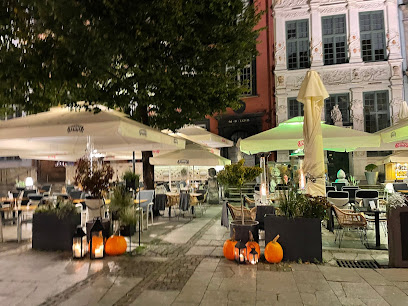
Markets, malls and hidden boutiques
Galeria Madison
Explore Gdańsk's Galeria Madison: a vibrant shopping hub with diverse stores, delightful dining, and a lively atmosphere for tourists.
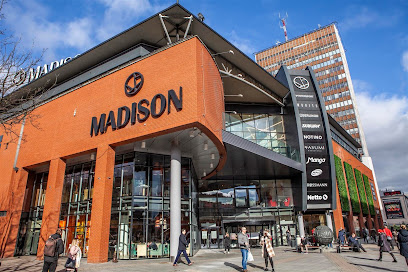
Forum Gdańsk
Explore Forum Gdańsk, a shopping mall blending fashion, dining, and entertainment in the heart of Gdańsk, Poland.
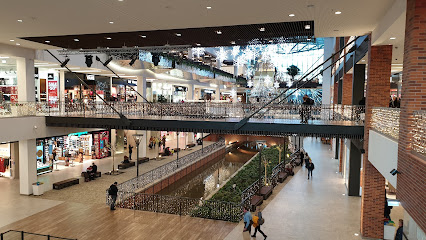
Sklep Pańska
Discover a charming gift shop in Gdańsk offering unique posters, exquisite pottery, and authentic souvenirs that celebrate Polish culture.
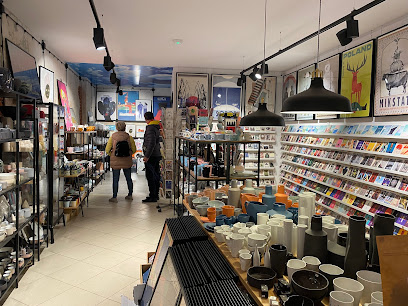
Sklep z Pamiątkami Pamiątki Souvenirs
Explore Sklep z Pamiątkami in Gdańsk for authentic Polish souvenirs that capture the essence of your travels.
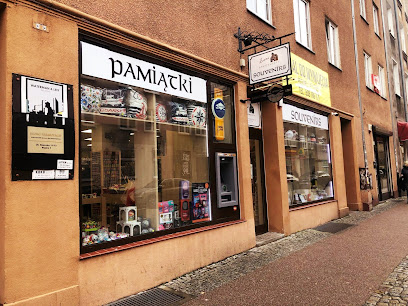
Vintage For Ever & KABAK socks
Explore a treasure trove of vintage clothing and whimsical socks in the heart of Gdańsk, where fashion meets history and style.
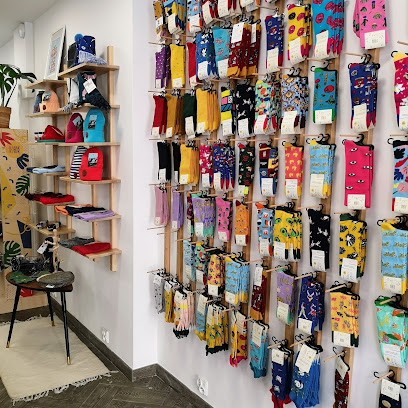
Unique Amber
Explore Unique Amber in Gdańsk for exquisite handcrafted amber jewelry, celebrating the region's rich culture and maritime heritage.
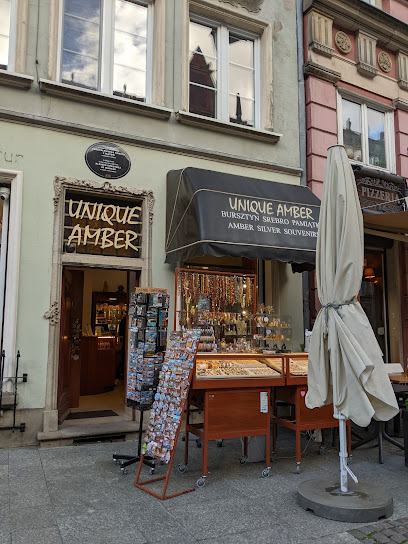
Kamienica Ferber
Explore Kamienica Ferber, Gdańsk's enchanting novelty store filled with unique crafts and delightful souvenirs reflecting local culture.
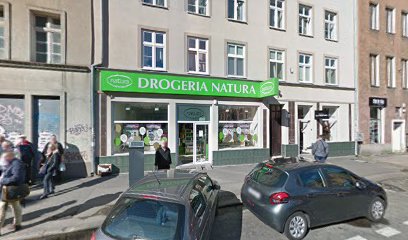
Boutique Apartments
Experience the elegance and comfort of Boutique Apartments, your ideal retreat in the heart of historic Gdańsk, Poland.
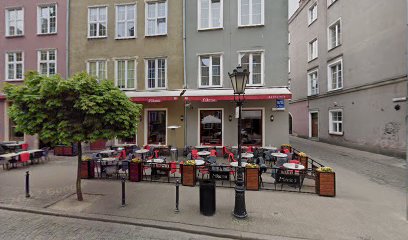
Shopping Mia
Explore the unique charm of Shopping Mia in Gdańsk, where fashion meets elegance in a cozy boutique atmosphere.
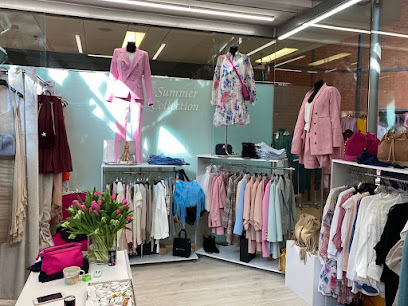
Boutique Eveline
Explore Boutique Eveline in Gdańsk for a unique fashion experience that captures the essence of Polish style and charm.
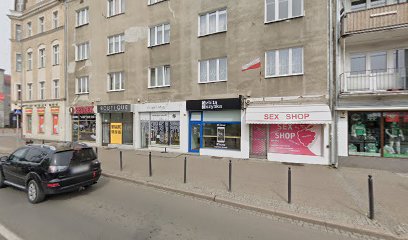
Essential bars & hidden hideouts
Wiśniewski Gdańsk
Experience the vibrant nightlife of Gdańsk at Wiśniewski, where cocktails and culinary delights meet in a lively lounge atmosphere.
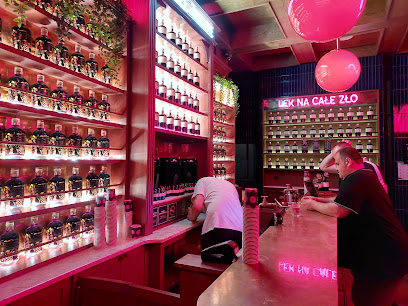
Flisak '76
Discover Flisak '76, Gdańsk's premier cocktail bar, renowned for its creative drinks and vibrant atmosphere, perfect for a night out.
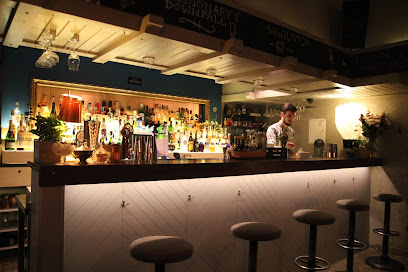
Pub Pixel
Discover the vibrant cocktail culture at Pub Pixel, a unique bar in Gdańsk known for its creative drinks and inviting atmosphere.
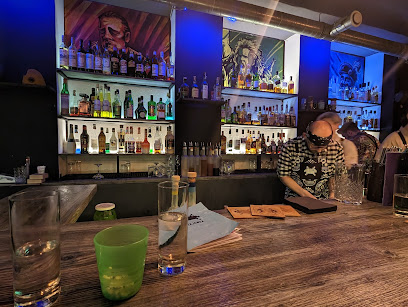
Tiki Jungle
Experience the tropical vibes of Tiki Jungle in Gdańsk, a vibrant lounge offering exquisite cocktails and delicious tapas for an unforgettable night out.
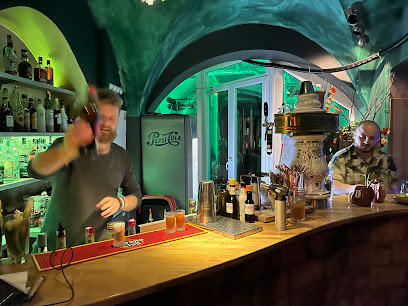
Mała Sztuka Cocktail Bar - Gdańsk Śródmieście
Experience the creativity of mixology at Mała Sztuka Cocktail Bar, where every sip tells a story in the heart of Gdańsk's nightlife.
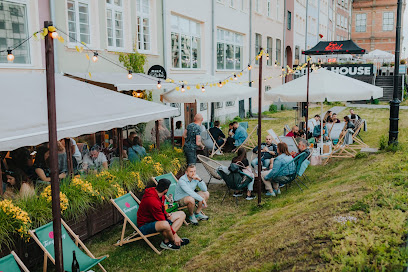
Craft Cocktails - Cocktail Bar
Discover Craft Cocktails in Gdańsk, where mixology meets creativity in a cozy atmosphere perfect for unwinding and socializing.
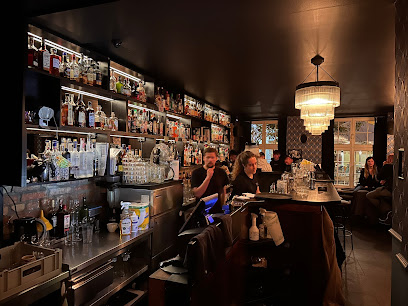
Fahrenheit by Jack's
Experience the vibrant nightlife and culinary delights at Fahrenheit by Jack's, a premier bar and restaurant in the heart of Gdańsk.
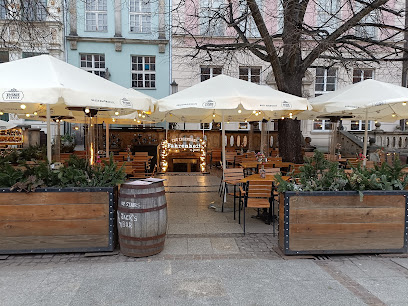
Winston Bar | Cocktail Bar centrum Gdańsk
Discover Winston Bar in Gdańsk, where exceptional cocktails meet vibrant ambiance in a trendy cocktail haven.
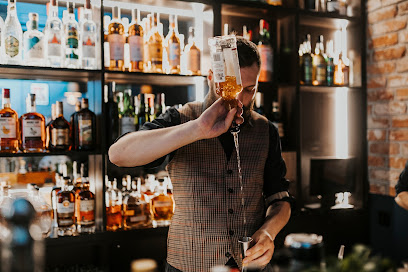
TLEN Cocktail Bar | Gdańsk Śródmieście
Explore TLEN Cocktail Bar in Gdańsk: a vibrant cocktail bar and gastropub offering innovative drinks and a lively atmosphere.
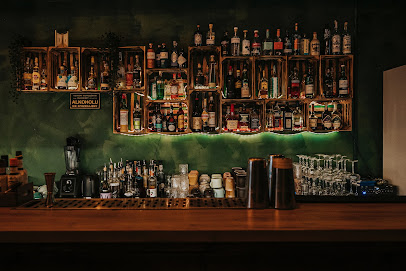
Craft Cocktails Szeroka - Cocktail&Gin Bar
Discover the art of cocktail craftsmanship at Craft Cocktails Szeroka, Gdańsk's premier bar for unique flavors and an unforgettable atmosphere.
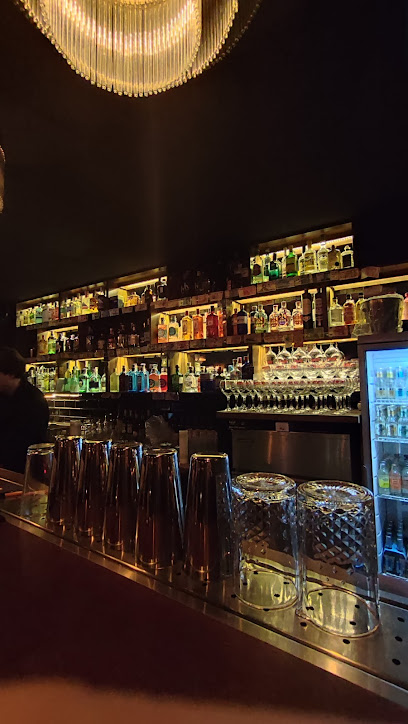
Local Phrases
-
- HelloCześć
[cheshch] - GoodbyeDo widzenia
[doh veed-zen-ya] - YesTak
[tahk] - NoNie
[nye] - Please/You're welcomeProszę
[pro-sheh] - Thank youDziękuję
[jen-koo-yeh] - Excuse me/SorryPrzepraszam
[psheh-prah-sham] - How are you?Jak się masz?
[yahk shyeh mahsh] - Fine. And you?Dobrze. A ty?
[doh-bzheh. ah tuh?] - Do you speak English?Czy mówisz po angielsku?
[chi mooh-veesh poh ahn-gyehl-skoo?] - I don't understandNie rozumiem
[nye roh-zoo-myem]
- HelloCześć
-
- I'd like to see the menu, pleaseChciałbym zobaczyć menu, proszę
[h-cha-oh-bim zoh-bah-chich meh-noo, proh-sheh] - I don't eat meatNie jem mięsa
[nye yem myen-sah] - Cheers!Na zdrowie!
[nah zdroh-vyeh] - I would like to pay, pleaseChciałbym zapłacić, proszę
[h-cha-oh-bim zah-plah-cheech, proh-sheh]
- I'd like to see the menu, pleaseChciałbym zobaczyć menu, proszę
-
- Help!Pomocy!
[poh-moh-tsi] - Go away!Idź sobie!
[eedzh soh-byeh] - Call the Police!Zadzwoń po policję!
[zahdz-vohn poh poh-leets-yeh] - Call a doctor!Zadzwoń po doktora!
[zahdz-vohn poh dohk-toh-rah] - I'm lostZgubiłem się
[zgoo-bye-wem shyeh] - I'm illJestem chory/a
[yeh-stem hoh-ri/ah]
- Help!Pomocy!
-
- I'd like to buy...Chciałbym kupić...
[h-cha-oh-bim koo-peek] - I'm just lookingTylko się rozglądam
[tul-koh shyeh rohz-gwah-dahm] - How much is it?Ile to kosztuje?
[ee-leh toh kohs-too-yeh] - That's too expensiveTo za drogie
[toh zah droh-gyeh] - Can you lower the price?Czy możesz obniżyć cenę?
[chi mo-zhesh ohb-nee-zhoo-ch cheh-neh]
- I'd like to buy...Chciałbym kupić...
-
- What time is it?Która jest godzina?
[k-toh-rah yest god-zee-nah] - It's one o'clockJest pierwsza
[yest pye-veers-zah] - Half past (10)Pół do (10)
[poow doh (dyes-yem)] - MorningRano
[rah-noh] - AfternoonPopołudnie
[poh-poo-wood-nyeh] - EveningWieczór
[vyech-oor] - YesterdayWczoraj
[v-choh-rye] - TodayDziś
[jeesh] - TomorrowJutro
[yoo-troh] - 1Jeden
[yeh-den] - 2Dwa
[dvah] - 3Trzy
[tshih] - 4Cztery
[ch-teh-ri] - 5Pięć
[pyehnch] - 6Sześć
[sheshch] - 7Siedem
[syeh-dem] - 8Osiem
[oh-shyem] - 9Dziewięć
[dzyeh-vyehnch] - 10Dziesięć
[dzyeh-shyehnch]
- What time is it?Która jest godzina?
-
- Where's a/the...?Gdzie jest...
[gdzhe yest] - What's the address?Jaki jest adres?
[yah-kee yest ah-dresh] - Can you show me (on the map)?Czy możesz mi pokazać (na mapie)?
[chi mo-zhesh mee poh-kah-zach (nah mah-pee-eh)] - When's the next (bus)?Kiedy jest następny (autobus)?
[kyeh-deh yest nah-stehp-neh (ow-toh-boos)] - A ticket (to ....)Bilet (do ....)
[bee-let (doh ....)]
- Where's a/the...?Gdzie jest...
History of Main City
-
Main City, or Główne Miasto, was officially founded in the late 13th century, becoming a pivotal member of the Hanseatic League. This powerful trade network allowed Gdansk to flourish as a maritime hub, facilitating commerce between Poland and Western Europe. The architectural style of Main City reflects this prosperous era, with its impressive Gothic and Renaissance buildings serving as a testament to its wealth and influence.
-
In the early 15th century, Gdansk faced significant conflict during the Thirteen Years' War (1454-1466) against the Teutonic Knights. The city was besieged and ultimately liberated, solidifying its allegiance to Poland and enhancing its status as a key port. The impact of this siege is commemorated in local lore and can be explored through various historical markers throughout Main City.
-
The 16th century brought the influence of the Reformation, leading to a cultural and religious transformation in Main City. Gdansk became a center for Protestantism, and the period saw the construction of significant religious buildings, including St. Mary's Church, one of the largest brick churches in the world. This era also fostered advancements in art, science, and literature, contributing to Gdansk's rich cultural tapestry.
-
The Second World War had a devastating impact on Gdansk and Main City, with much of its historic architecture destroyed during the Nazi occupation and subsequent Soviet bombardment. The city was at the center of the war's beginning, with the attack on the battleship Schleswig-Holstein at Westerplatte marking the start of hostilities in Europe. The post-war reconstruction of Main City aimed to restore its historical character, though many original structures were irrevocably lost.
-
In the 1980s, Gdansk became a focal point of the Solidarity movement, led by Lech Wałęsa. The shipyard strikes and protests in the city played a crucial role in the eventual fall of communism in Poland. Main City served as the backdrop for many pivotal events during this period, and today, the legacy of Solidarity is preserved in museums and public spaces, celebrating Gdansk's role in the fight for freedom and democracy.
Main City Essentials
-
Main City is easily accessible from other neighbourhoods in Gdansk. If you're arriving from Gdansk Lech Walesa Airport, you can take a direct bus (Line 210) to the city center, which takes about 30 minutes. Alternatively, taxis and rideshare services are available. From Gdansk Glowny Railway Station, Main City is a short 15-minute walk or a quick tram ride on lines 6, 8, or 10.
-
Main City is compact and pedestrian-friendly, making it ideal for exploring on foot. Public transport is efficient, with trams and buses connecting various parts of the city. For a more local experience, consider renting a bicycle from one of the many bike-sharing services available. Remember to check the bike lanes and paths for safe cycling.
-
Main City is generally safe for tourists, but like any urban area, it's wise to stay vigilant. Petty crimes, such as pickpocketing, can occur in crowded places like the Long Market. Avoid walking alone late at night in poorly lit areas, particularly around the riverside. While Gdansk has a low crime rate, it's best to remain cautious and keep personal belongings secure.
-
In case of an emergency, dial 112 for police, fire, or medical assistance. The local hospitals are equipped to handle emergencies, and most staff speak basic English. For minor health issues, pharmacies are widely available throughout Main City. It is advisable to have travel insurance that covers medical emergencies.
-
Fashion: Do dress appropriately for the weather and consider modest attire when visiting churches. Don't wear beachwear outside of the beach areas. Religion: Do respect local customs, especially in religious sites. Always ask before taking photos. Public Transport: Do validate your ticket before boarding. Don't eat or drink on public transport. Greetings: Do greet with a firm handshake. Don't forget to say 'Dzień dobry' (Good day) when meeting someone new. Eating & Drinking: Do try local specialties, such as pierogi and żurek. Don't refuse food or drink offered by locals, as it's considered impolite.
-
To experience Main City like a local, visit the food markets for fresh produce and local delicacies. Engage with the locals in cafés or pubs, where they might share stories about the city. Explore off the beaten path by wandering into lesser-known streets and alleys to discover hidden gems, such as small galleries and artisan shops. Don’t miss the opportunity to join a local walking tour to gain deeper insights into the rich history of Gdansk.
Nearby Cities to Main City
-
Things To Do in Sopot
-
Things To Do in Elblag
-
Things To Do in Olsztyn
-
Things To Do in Bydgoszcz
-
Things To Do in Torun
-
Things To Do in Klaipėda
-
Things To Do in Poznan
-
Things To Do in Suwalki
-
Things To Do in Warsaw
-
Things To Do in Liepaja
-
Things To Do in Szczecin
-
Things To Do in Lodz
-
Things To Do in Kalmar
-
Things To Do in Marijampolė
-
Things To Do in Bialystok













